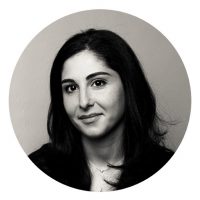
Neil Astley
We are delighted to have another pair of Bloodaxe collections on this year’s T.S. Eliot shortlist, Hannah Lowe’s third collection The Kids and Selima Hill’s twentieth, Men Who Feed Pigeons. Two poets from Bloodaxe’s multigenerational list: Selima Hill, whose first Bloodaxe collection, A Little Book of Meat, appeared in 1993, and Hannah Lowe, thirty years younger, who published her debut, Chick, with Bloodaxe in 2013.
As well as continuing to publish and support poets we’ve published for many years, we’ve played our part in the diversification of British poetry, which began for us back in the 1980s with the publication of E.A. Markham’s seminal anthology Hinterland – soon made an Open University set text – including poets Bloodaxe went on to publish: James Berry, Kamau Brathwaite, Fred D’Aguiar, Linton Kwesi Johnson, Grace Nichols, Olive Senior.
Thirty years ago, in 1991, Jackie Kay’s The Adoption Papers – rejected by the London poetry publishers – was our first debut collection by a poet of colour. In the course of the next decade, Imtiaz Dharker was first published in the UK by Bloodaxe; other poets joining her on the Bloodaxe list included John Agard, Moniza Alvi, Jean ‘Binta’ Breeze, Jack Mapanje and Benjamin Zephaniah.
Our international list was expanded to include Aimé Césaire from Martinique, Martin Carter from Guyana, Tishani Doshi and Arundhathi Subramaniam from India, and Elizabeth Alexander (Obama’s inaugural poet) and Patricia Smith from the US. Debut collections followed from Bernardine Evaristo (Lara, rewritten and expanded after its original publisher folded), Amali Gunasekera (formerly Rodrigo), Jacob Sam-La Rose, Vidyan Ravinthiran, Shazea Quraishi, and of course, Hannah Lowe.
There have also been several Bloodaxe anthologies of poets of colour, including three in the Ten series showcasing the work of 30 poets from the Complete Works mentoring scheme founded by Bernardine Evaristo and directed by Nathalie Teitler. Inspired by the Complete Works, Bloodaxe and NCLA (Newcastle Centre for the Literary Arts) launched the James Berry Poetry Prize this spring, the first poetry award in the UK to offer both mentoring and book publication. The three equal winners of the inaugural prize, Kaycee Hill, Marjorie Lotfi and Yvette Siegert, will be mentored over the next year by Malika Booker, Mimi Khalvati and Mona Arshi, and will see their debut book-length collections published by Bloodaxe in 2023.




